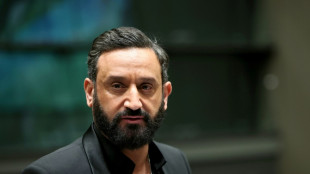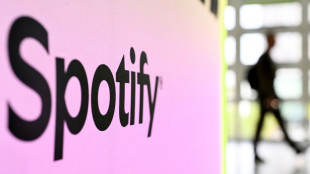Musk's X returns in Brazil after 40-day showdown with judge
Elon Musk's social media platform X, which was banned in Brazil for 40 days in a legal tussle over disinformation, was available again in the country on Wednesday.
The site's return follows the Supreme Court's lifting on Tuesday of its suspension in Brazil, which is the social network's largest Latin American market.
Users reacted enthusiastically to its return with the hashtag "#voltou" ("I'm back") trending in Brazil.
The network also welcomed the decision, although Musk himself has yet to publicly respond.
"X is proud to return to Brazil," it said on its global government affairs account, adding that it would "continue to defend freedom of speech, within the boundaries of the law, everywhere we operate."
The reactivation appeared to be taking place sporadically, with some users still failing to connect on Wednesday morning.
Brazil's telecoms regulator Anatel explained that the delays experienced by some were due to the workings of their internet providers.
X had 22 million users in Brazil before it was blocked on August 30 by crusading Supreme Court judge Alexandre de Moraes for failing to comply with a series of court orders aimed at combatting disinformation.
On Tuesday, Moraes authorized X to resume activities after it paid around $5.2 million in fines for flouting court decisions.
The company also complied with his other demands, including that it deactivate the accounts of several supporters of far-right ex-president Jair Bolsonaro who were accused of spreading disinformation and online hate speech.
Some of the accounts have been linked to an investigation into the alleged use by Bolsonaro and his inner circle of so-called "digital militias" during his 2019-2022 presidency.
- 'Brazil is sovereign' -
The showdown between the powerful but polarizing Moraes and Musk, the world's richest man and self-described "free-speech absolutist," was closely watched around the world.
Musk had lashed out at Moraes over the ban, calling him an "evil dictator" and dubbing him "Voldemort," after the villain from the "Harry Potter" series.
Moraes, for his part, accused X of being a danger to democracy.
Communications Minister Juscelino Filho called the outcome a "triumph" for Brazil.
"We have shown the world that here you have to respect the law, whoever you are. Brazil is sovereign," he said in a statement.
Brazilians have been bitterly divided over the justification for the shutdown.
Many die-hard supporters of Bolsonaro, who was narrowly defeated in his bid for a second term in 2022 by veteran left-winger Luiz Inacio Lula da Silva, saw it as an attempt to silence them.
"Freedom of expression has to exist here. That is why we are fighting," Lilian Lazarini, a 50-year-old businesswoman living in Sao Paulo, told AFP.
Abi Garcia, a 22-year-old student also living in Sao Paulo, took a different view.
X "disrupts people's lives a lot, with negative comments, etc," she told AFP.
"If people used it as a way of learning and improving themselves it would be much better, but they don't," she complained.
Human Rights Watch said that the clampdown on X had "adversely impacted" free speech and access to information for millions of Brazilians, who risked hefty fines if they used a VPN to try to work around the ban.
It called for the case to serve as a "wake-up call" for social networks.
"Whether rights are protected should not depend on the whims of authorities and corporations."
Musk gutted X's content moderation staff when he took over the network in October 2022.
His fight with Moraes began in the run-up to Brazil's October 2022 election and escalated following attacks by Bolsonaro supporters on federal buildings in Brasilia after Lula was inaugurated in January 2023.
The destruction by supporters of Bolsonaro, dubbed the "Trump of the Tropics," drew comparisons with the January 2021 attacks by supporters of then US president Donald Trump on the US Capitol.
O.Greco--RTC



